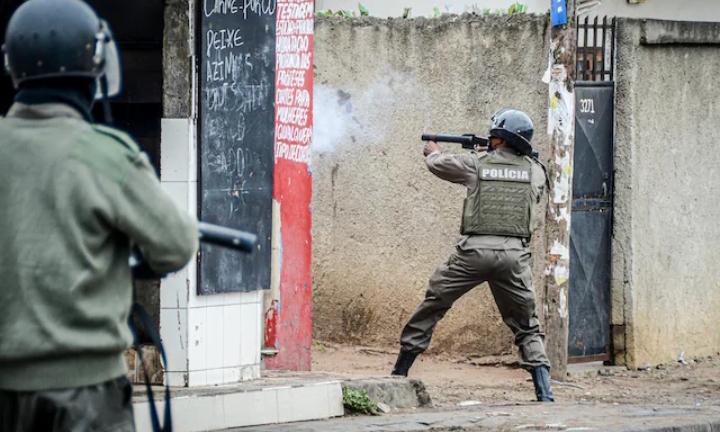Mozambique security forces violently cracked down on post-election protests, killing over 300 people, injuring thousands, and arresting many, amid allegations of election fraud and political repression.
At Least 300 Killed in Mozambique's Post-Election Violence, Amnesty Reports


Mozambique’s security forces engaged in a violent three-month-long crackdown on demonstrators following last year’s general election, according to a new report released by a prominent international human rights organization. The report, which cites accounts from local activists, alleges that over 300 people were killed and more than 3,000 injured during the unrest.
Amnesty International, in its latest findings, has urged the Mozambican authorities to launch a full investigation into the killings and other human rights abuses committed in the post-election period. The group further called for all law enforcement officers found responsible to be held accountable through legal proceedings.
Following the presidential and parliamentary elections on October 9 — in which ruling Frelimo party candidate Daniel Chapo was declared the winner — thousands of Mozambicans took to the streets to protest. The results were met with allegations of vote rigging and fraud, voiced by opposition candidates and international observers alike.
The demonstrations were largely in support of Venancio Mondlane, an independent presidential candidate endorsed by the opposition Podemos party. Tensions escalated significantly after October 18, when Mondlane’s lawyer and a senior Podemos official were shot dead late at night while seated in a car in the capital, Maputo.
Condemning the double killing as a political assassination, Mondlane called for 25 consecutive days of protest — one day for each of the 25 bullets reportedly fired into the vehicle. Fearing for his life, Mondlane temporarily left Mozambique and remained in exile for two months before returning in January.
According to Amnesty International’s report, Mozambican police and military forces used excessive and often lethal force between October 21 and January 25. The security forces reportedly deployed live ammunition, rubber bullets, and tear gas against predominantly peaceful protesters and bystanders.
The report references findings by local civil society organization Plataforma DECIDE, which stated that 315 people were killed during protests between October 21 and January 16. This figure significantly exceeds the official count released by authorities in January, which cited 96 deaths — including 17 police officers.
“Police unlawfully used firearms and less lethal weapons, killing and injuring protesters and bystanders,” Amnesty stated. “The army also used force and less lethal weapons recklessly and unlawfully.”
Amnesty’s report is based on interviews with 28 individuals, including eyewitnesses, victims and their relatives, legal professionals, and medical workers. Other human rights organizations have confirmed that at least 10 of those killed during the protests were children.
The report further documents mass arrests carried out by police, which included the detention of teenagers and individuals not directly involved in the demonstrations. Plataforma DECIDE estimated that over 4,000 people were arrested, with the majority detained arbitrarily.
Amnesty also presented evidence that Mozambican internet providers restricted access to social media platforms such as Facebook and Instagram, as well as to the messaging application WhatsApp, during critical moments of the protest movement.
Chapo was officially sworn in as president in January. In March, he held a meeting with Mondlane in an attempt to initiate mediation, during which he pledged to investigate the deaths resulting from the protests.
The ruling Frelimo party, which has governed Mozambique since gaining independence from Portugal in 1975, has frequently faced accusations of manipulating electoral processes through loyalist appointments to key election bodies. An election monitoring report from the European Union cited multiple irregularities in the 2024 election, including the intentional invalidation of opposition votes, tampering with vote tallies, and ballot box stuffing in favor of Frelimo.
Mozambican political dynamics remain shaped by the legacy of a 15-year civil war between Frelimo and the rebel group Renamo, which ended in 1992. Renamo later transitioned into a political party. The recent protests supporting Mondlane — a former Renamo member — represent the most significant challenge to Frelimo’s long-standing grip on power.
Although public demonstrations have largely subsided following the government’s harsh response, episodes of violence continue. This week, Mondlane visited the port city of Quelimane, where on Sunday one of his key campaign coordinators, Joel Amaral, was shot by unknown gunmen. Amaral was hit three times, including once in the head, but survived the attack and is currently receiving intensive care in the hospital.

 বাংলা
বাংলা  Spanish
Spanish  Arabic
Arabic  French
French  Chinese
Chinese 
